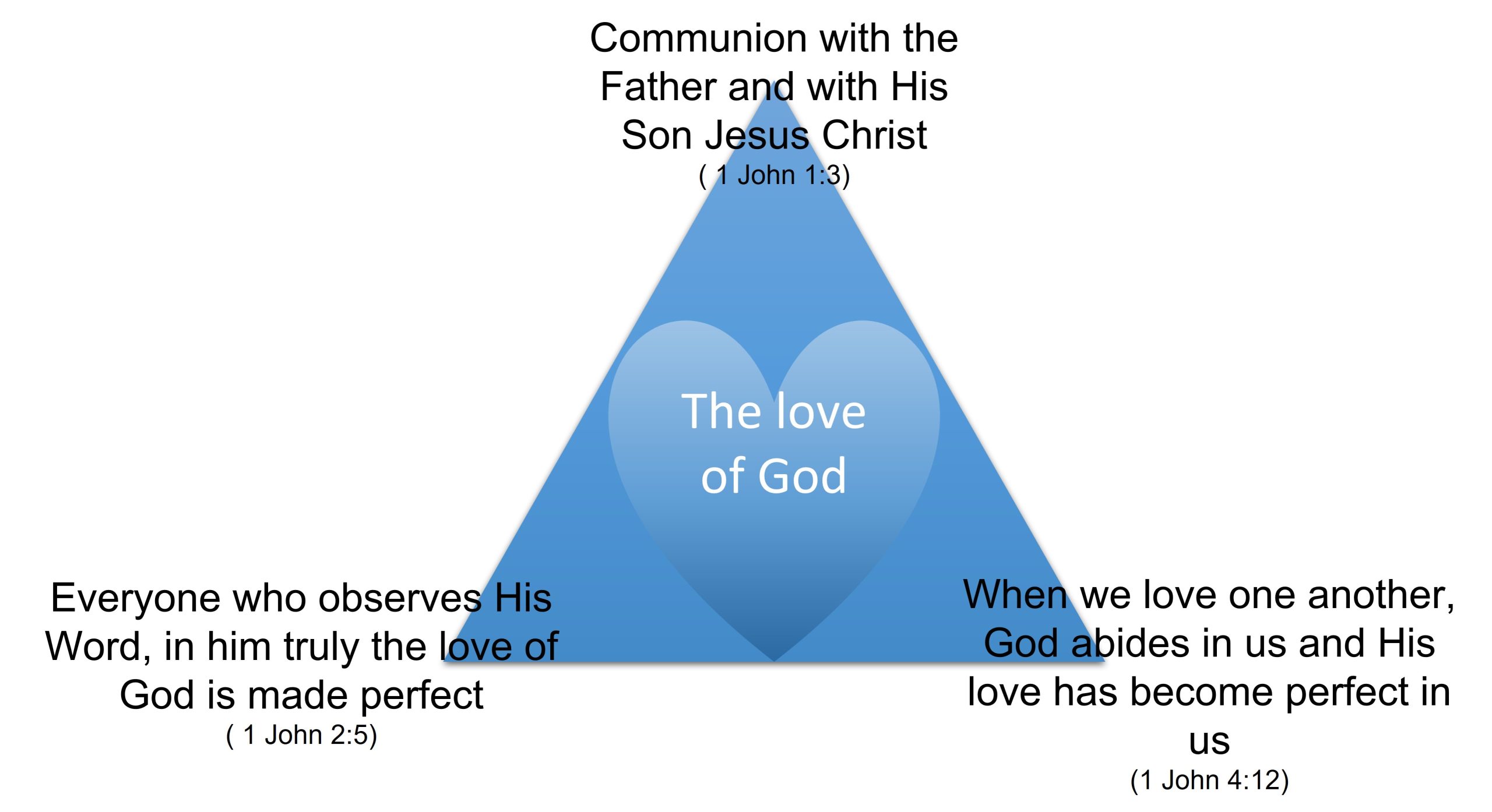John 15 contains teachings from the Lord Jesus about the essence of the Christian life. They are lessons, so to speak, about the Vine, about His love, and about the hatred of the world. The first two are about our fellowship with the Lord Jesus Christ and with God our Father. But this has consequences for our relationship to the world.
The Vine: Fruit for the Father
The Lord makes it clear that in Him, the Vine have to stay. It is important to see that its purpose is to bring forth fruit for the Vineyarder—the Father. Then we must ask what is meant by this fruit. You could say it's like 'living a life pleasing to God' or a 'life of complete surrender to Christ' or more such expressions. But I must honestly say that I then give up a bit, because I really don't meet that standard. . .

Added later.
Just a little interlude on John 15:2a.
The translation reads, "Every vine that does not bear fruit in Me He takes away ...". The original Greek word translated here as "take away" can also be translated as "lift up. Then you can translate "Every vine that bears no fruit in Me He lifts up ...". In my opinion, this is a better translation, because it means that the Father, as the vinedresser, is concerned with all the tendrils that have the connection to the Lord Jesus. The first ones He lifts up and strengthens so that they bear fruit. The others He cleanses so that they bear more fruit.
Is that not also our own experience in our spiritual life? That our God and Father is busy with us even when we are not bearing fruit? So that we do begin to bear fruit....
The first thing you notice is that it is 'fruit to the Father'. So apparently it's not so much about living a "relevant" life for society - or for the church. If we take the text literally – and why wouldn't you? – then it is fruit for God the Father. It is something He is, as it were, 'waiting for'; fruit as a logical consequence of something else.
The second thing that stands out is the use of the words "to cleanse" and "to be clean" (in verses 2 and 3). For purity in the Bible always has to do with the fitness to draw near to God. In the Old Testament, the precepts regarding purity were of great importance to the priestly and sacrificial service in Israel. But spiritually this is equally true in the New Testament; there too it is used in several places to express 'suitability for the (sacrificial) service'.
- “Charity out of a pure heart” (1 Tim. 1:5), “holding the mystery if the faith in a pure conscience." (1 Tim.3:9), "serving God with pure conscience” (2 Tim. 1:3) and “calling on the Lord out of a pure heart” (2 Tim. 2:22). It concerns the inner condition of heart and conscience that are so 'pure' that man can approach God and serve Him. The fact that the word is also used in particular in the letters to Timothy indicates to me that it also mainly means that the person has not defiled himself with idolatry (see here). This meaning applies even to Paul in his unconverted state (1 Tim. 1:13; 2 Tim. 1:3).



Then we come almost automatically to the meaning of 'fruit for the Father'. It is what the Lord Jesus said:But the time is coming and now is when the true worshipers will worship the Father in spirit and in truth, for the Father seeks those who so worship Him.” (John 4:23). When I thank the Lord Jesus for Who He is and for what He has done on Calvary, I can only thank the Father for His Son. Thanks, praise, honor and worship is the fruit of the Father. It is what He desires.
But it can only happen when I daily thank and admire the Lord Jesus for His greatness. concern yourself with His Person and with His work; that is 'abide in Him' (John 6:56). Then I remain as a branch in the Vine and bring forth fruit unto the Father. Without the relationship with the Lord Jesus, fruit for God the Father is impossible.
Besides, it is also not possible without the Word of God, which nourishes us spiritually. The Lord says it explicitly in this section:If you abide in Me and My words abide in you (…)” (John 15:7). That Word that speaks everywhere about Christ and invites us again and again to magnify Him and the Father. Without the Word of God we do not remain in the Vine and we dry up spiritually.
The love of God
The next part (vss 9-17) is about love. Not just 'love', but the love of the Father, which He has for His Son (vs 9) and which is also called 'My love' by the Lord Jesus (vs 9 and 10). That is the love of God, which is poured out in our hearts by the Holy Spirit when we are born again (Rom.5:5).
- We have written about this several times before. For example here and on this place.
John has expressed the lessons of the Lord Jesus about 'love' in his first letter. He describes that this love of God in us is the source for
- our loving relationship with God the Father and the Lord Jesus Christ (1 John 1:3)
- our love for God's Word (1 John 2:5) and
- our love to all who are born of God (1 John 4:12).

In this way the love of God in us comes to its end; love 'becomes perfect' says John. The Lord Jesus says of this that it is His joy in us that 'will become complete' (John 15:11).
How great is what God would work in a converted sinner by the gift of His Spirit and the outpouring of His love into our hearts! A change of unprecedented magnitude!
The Lord Jesus Himself teaches us here in John 15 about the essence of the Christian life of faith: to know the Lord Jesus Christ, to praise and honor God the Father, to keep His Word and to love the brothers and sisters. You could say it is the New Testament variant of the 'confidential relation' of the Old Testament believers (eg Ps.25:14).
Our relationship with the Lord Jesus is not like a slave to his master; someone who just does what the lord tells him to do. But our relationship with Him is like with a friend. He has no secrets for us: He has told us everything”what He heard from His Father” (vs 15). As the Lord Jesus taught His disciples, He also wants to give us a kind of 'discipleship training' through the Holy Spirit from God's Word and the content of that is “all that He has heard from His Father“. Or in other words: all that is in God's heart, the things 'from the depths of God' (1 Cor.2:9-12). The whole Word of God.
The relationship of friends also has the association with 'together', with 'sharing things' and with 'sharing life'. Now when the Lord Jesus'all that He has heard from the Father' has shared with His disciples, should we not also share more with one another? Talking to each other about what the Lord has shown us, what we have learned from Him from His Word?
- Moses also had a confidential relationship with the Lord, which God's Word associates with 'friend'. “The LORD spoke to Moses face to face, as a man speaks to his friend.” (Exodus 33:11). As a result, Moses knew, among other things, what the Lord thought about him. “You yourself have said, I know you by name, and also, You have found favor in my sight.” (Exodus 33:12).
When this is how we would live as redeemed from this world, showing how God intended life with Him, it arouses the wrath of God's adversary and we will experience the hatred of the world.
The hate of the world
Finally, the last lesson in this chapter, which the Lord wants to teach His disciples. What matters is how the world will react if the disciples continue to follow the Lord Jesus. It's not a pleasant message, but it's part of it.
“If the world hates you, know that it hated Me before you.” (John 15:18)
Of 'the world' is also meant – and perhaps especially – the religious, religious world. This is also apparent here: they will soon throw you out of the synagogue and believe that God is pleased with that (John 16:2). If you really follow the Lord, you will have to deal with the opposition of so-called 'fellow believers'. In the past in Judea it was the Jews and in Thessalonica the Jews and the 'fellow citizens' of the believers who made their lives miserable and they would rather lose than be rich (1 Thess.2:14-15; Acts 17:4-5 ). Paul also warned the Thessalonians from the beginning against tribulation and persecution. “Because you yourself know that we are destined for this. For when we were with you, we told you beforehand that we would be afflicted, just as we have done – and you know it.” (1 Thessalonians 3:3-4).
We also find the same phenomenon in the Old Testament; just think of the opposition that 'the righteous' always encountered from 'the wicked'. The Psalms continually testify to it, and they are also mentioned in Hebrews 11. “They suffered need, were oppressed and mistreated. The world was not worth them.” (Hebrews 11:36-38).
The underlying reason for this is that they reject the Lord Jesus as Savior. They do not want to accept Him, because that means that they have to recognize their hopeless lost condition – as a sinner before the holy God. The Lord has come into the world as light and has enlightened every person (John 1:5,9). But they have”loved the darkness over the light“(John 3:19). They know their sin and know what they are doing: the Lord makes it clear in this section. It is the hatred against the Lord Jesus and against God the Father that drives them (John 15:22-23).
It is noteworthy that what is most valuable to the believer—communion with the Lord Jesus Christ and with God the Father—is the very reason for religious man's hatred and opposition. It is deeply anti-Christian, as John also makes clear in his letters:"the antichrist, who denies the Father and the Son” (1 John 2:17-18; 2:22; 4:3; 2 John 1:7).

When the Lord was on earth, the religious world saw Who He was and what He did. “(…) but now they have seen them and hated Me and My Father.” (John 15:24).
The same they do to us – when we abide in Him – because we have received the Holy Spirit, the Comforter who testifies of Christ (John 15:26). We can live our lives as God intended – see John 15:1-17 – only because we have received the Spirit of God. But the world sees it; they observe us and how we live. Our lives 'testify', again revealing the hatred of the world.
“And you will also bear witness, for you have been with Me from the beginning“(John 15:27). This, of course, applies directly to the disciples who were to be sent forth as apostles of the Lord. But it also works the same for us. If all goes well, we are recognizable like the apostles “(…) like people who had been with Jesus” (Acts 4:13).
Just a few things to think about
- Does verse 6 (John 15:6) mean that the disciple who has no relationship with Christ as indicated here will be lost?
- In this chapter we speak twice about our prayers being answered by the father (John 15:7;15:16). This cannot be meant in general, but must have to do with the context. Which?
- This chapter is also a threefold test of our own faith: what kind of branch am I? But also: am I a slave of the Lord or am I called His friend? And the third test is whether we experience that 'the world hates us'?



